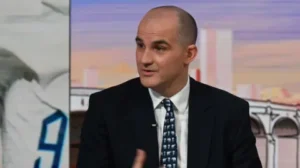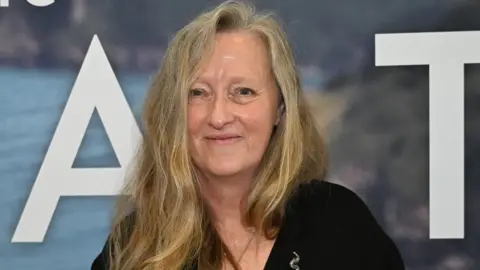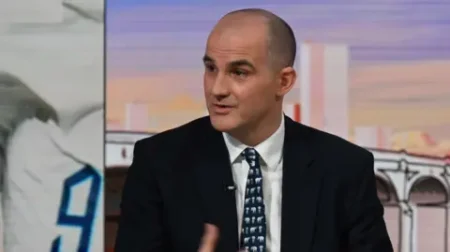**Raynor Winn Defends Herself Against Claims of Misleading Readers**
Recently, author Raynor Winn has found herself at the center of controversy due to allegations made by the Observer. The investigation posed claims that the life story recounted in her acclaimed 2018 book, *The Salt Path*, was misleading and inaccurate. Specifically, the article alleged that she misrepresented her experiences leading to the loss of her home alongside her husband, Moth, and called into question the details surrounding Moth’s debilitating illness. In response to these serious allegations, Winn published a detailed statement on her website, vehemently denying the claims and indicated that she is considering legal action.
The Observer’s article suggested that Winn’s narrative regarding their house loss—which supposedly involved a bad business investment—was inaccurate. It argued they had actually lost their home after failing to repay a £100,000 loan taken to cover funds she was accused of embezzling from a previous employer. This assertion struck at the heart of the couple’s story of homelessness and resilience, as highlighted in *The Salt Path*, where their 630-mile walk along the coastline was depicted as a journey of profound personal significance.
Winn’s response was robust and included the presentation of documents she claimed confirm that Moth had been diagnosed with corticobasal degeneration (CBD), a progressive neurological disorder. In her statement, she addressed the skepticism presented in the Observer concerning Moth’s health, arguing that the diagnosis of CBD is complex and ofttimes convoluted, requiring long-term observation and multiple tests before arriving at a conclusive understanding.
Additionally, Winn did not shy away from acknowledging that earlier in her career, she made “mistakes,” particularly relating to the accusations of having defrauded her prior employer of £64,000—a claim she emphasized had been settled with a non-admission of guilt, avoiding any criminal charges. She conveyed her regret over the stressful period, describing it as a time filled with pressures and mistakes made within the organization she worked for.
Moreover, she refuted claims about their financial status, stating, “we do not have any debts,” asserting that their financial position had been clarified through various financial checks. This included explaining that, despite owning an uninhabitable property in France described in the Observer as merely a camping plot, she asserted that it was simply a dilapidated building without the basic amenities necessary for habitation.
Winn stood firm on her narrative of how their journey unfolded, reaffirming that the depiction of their hardships was not ever intended to mislead. She expressed profound disappointment over what she called the “unbearable of the allegations.” In her opinion, the book serves not merely as a memoir but as a testament to Moth’s health struggles and a record of how their endurance and walking together had impacted both of their lives.
Throughout her lengthy rebuttal, she emphasized the honesty and openness with which she approached Moth’s illness in her writings. A key component of her message was that her depiction was personal, emphasizing that their story was rooted in the lived experience of coping with significant challenges—emotional and physical alike, rather than offering prescriptive guidance on illness or treatment.
As the controversy unfurls, it exemplifies the complexities of personal storytelling in literature and how such narratives can lead to scrutiny and debate in the public sphere. Winn’s robust defense underlines the intricate connections between truth, memory, and the nuanced realities of life experiences that often lie beyond simple perception, especially in autobiographical works. As discussions continue, it remains crucial to maintain an understanding of the human stories that emerge through literary expressions and the nuances that accompany them.
**Conclusion**
In summary, Raynor Winn’s defense against allegations of misleading readers reflects broader themes of authenticity, personal narrative, and the sometimes brutal scrutiny faced by memoirists. Her detailed response aims not only to clarify her standing but also to preserve the integrity of a story that resonates deeply with many who find solace in shared journeys through hardship. As public discourse progresses, there is a salient reminder of the weight carried by personal history in the literary world, and the emotional stakes involved in telling one’s own story.









